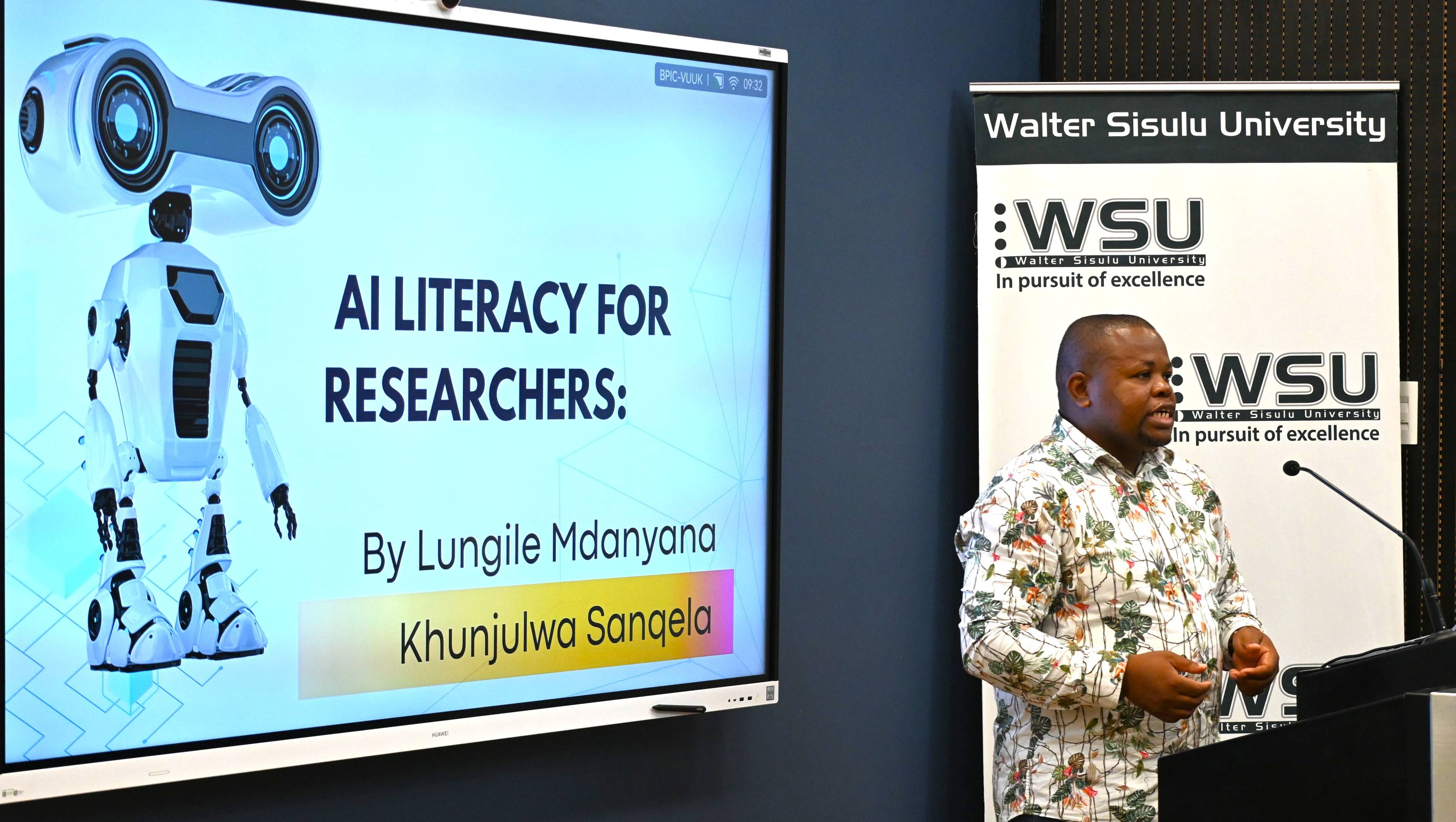WSU ACADEMICS AND STUDENTS ENGAGE IN A DYNAMIC DIALOGUE ON THE ROLE OF AI IN RESEARCH

The rapid rise of Artificial Intelligence (AI) in higher education took centre stage at WSU’s Buffalo City Campus, Potsdam Site, where academics and students gathered for a thought-provoking and interactive workshop exploring the intersection of AI and research.
The session, facilitated by Lungile Mdanyana, WSU’s E-Access and Digital Library Manager, created an open space for inquiry, reflection, and exchange — inviting participants to unpack the opportunities, challenges, and ethical dimensions of using AI in scholarly work.
A series of engaging discussions revolved around key AI themes that are reshaping research practice globally, including:
- AI for Literature Review and Discovery
- Generative AI for Academic Writing and Proofreading Support
- AI in the Research Data Management Lifecycle
- Ethical Considerations in AI-Driven Research
- Challenges and Solutions in the Age of Generative AI
Mdanyana highlighted the dual nature of the AI revolution — its transformative potential and its inherent complexity.
“The availability and rapid uptake of AI tools poses both challenges and opportunities for researchers,” he noted. “Our focus is to explore how generative AI is being used, its implications for research integrity, and how these tools can be harnessed productively and ethically across all phases of the research process.”
Participants examined how AI intersects with the traditional stages of scholarly inquiry — from identifying research problems and conducting literature reviews, to data collection, analysis, and the final act of writing and dissemination. The discussions underscored the need to preserve the sanctity and authenticity of the research process in the face of accelerating automation.
Adding a deeper dimension to the conversation, Khunjulwa Sanqela, Deputy Director of Library Services (Butterworth Campus), co-facilitated a session on prompt engineering — the art and science of crafting effective interactions with generative AI systems.
Sanqela demonstrated the “Role–Task–Format (RTF)” framework, breaking down the anatomy of a prompt to show how clarity, context, and structure can transform AI into a powerful intellectual assistant rather than a mere convenience tool.
“Prompt design is not just about getting an answer,” she explained. “It’s about learning to think critically, communicate clearly, and collaborate intelligently with AI systems.”
Through initiatives like this workshop, WSU continues to position itself at the forefront of digital scholarship, equipping its academic community to navigate and shape the evolving landscape of research in the age of intelligence.
By Thando Cezula
